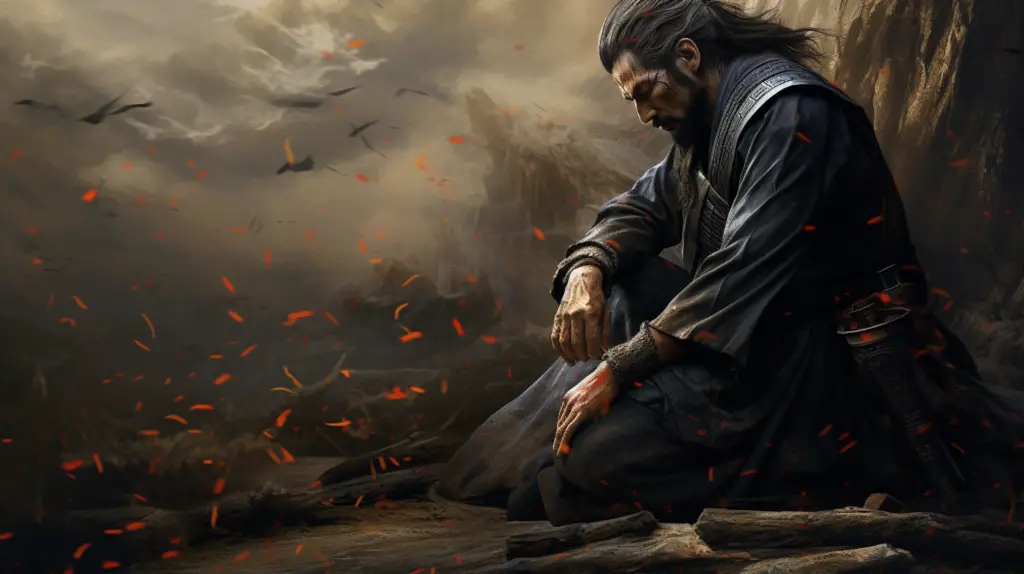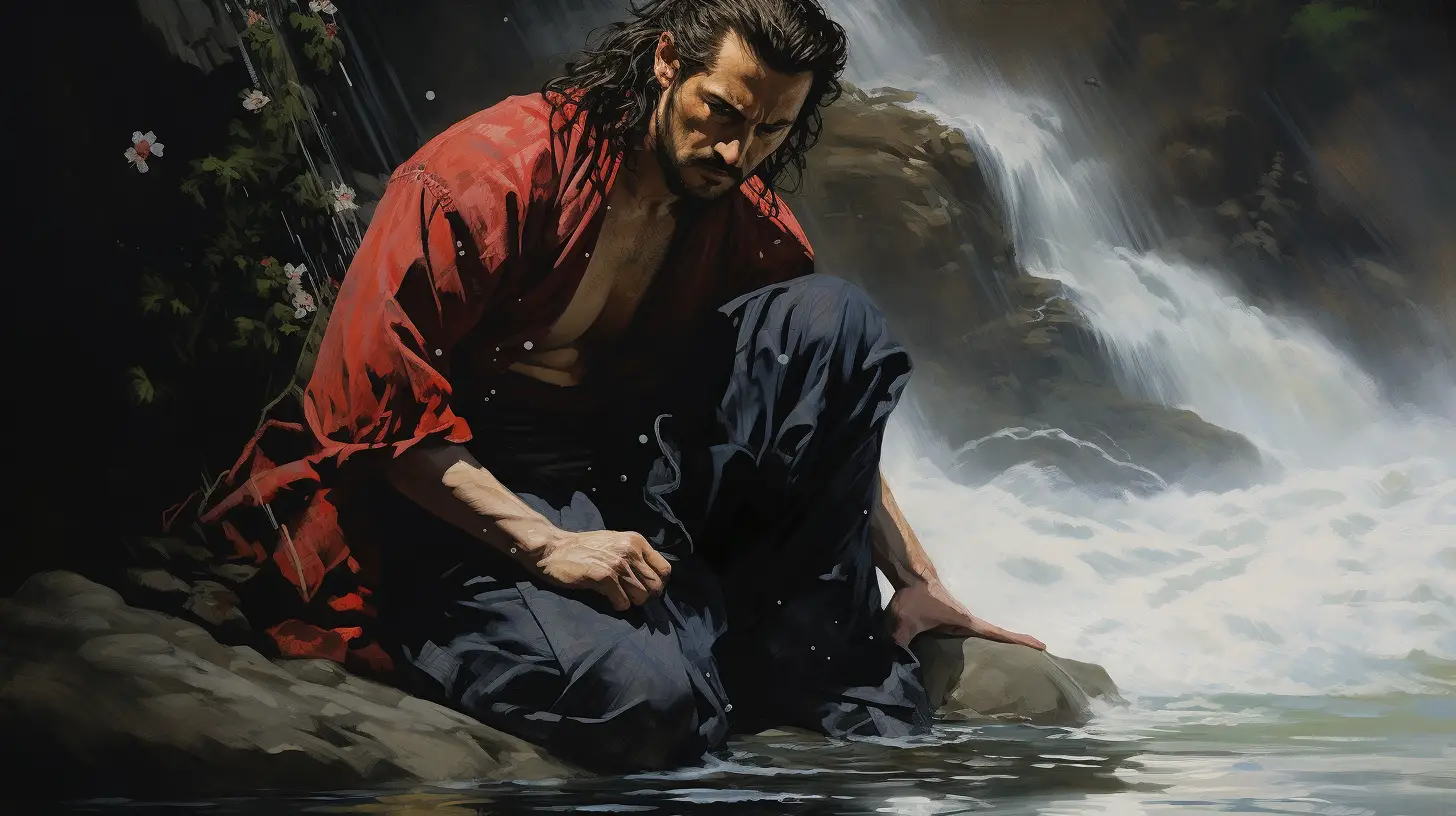Miyamoto Musashi, the unparalleled swordsman and philosopher of Japan, is renowned not only for his martial prowess and wisdom but also for his approach to spirituality. Even though Musashi’s way of life was deeply rooted in the samurai tradition, his spiritual practices and beliefs were not rigidly confined to any one religion or spiritual tradition.
This article explores the nature of Musashi’s praying practices and spirituality, focusing on his personal beliefs and practices, particularly in the context of prayer.
Musashi’s Spirituality and Prayer
Musashi’s writings, notably “The Book of Five Rings” and “Dokkodo,” reveal a man who deeply valued self-reliance, discipline, and introspection. Although these works are primarily concerned with martial arts and strategic thinking, they also give us glimpses into his spiritual beliefs and practices.
READ MORE: Miyamoto Musashi’s 21 Principles and Rules Explained: A Guide to Life and Strategy
- Buddhism and Shintoism: Born in a time when Buddhism and Shintoism were the dominant religions in Japan, Musashi was certainly exposed to and influenced by these religious traditions. Zen Buddhism, in particular, had a significant influence on the samurai class, and Musashi’s writings echo Zen’s emphasis on mindfulness, discipline, and understanding the nature of life and death. However, Musashi did not exclusively identify himself with any particular religious sect.
- Prayer in Musashi’s Life: While there is not a significant amount of information available on Musashi’s personal prayer practices, his writings suggest a man who sought understanding and strength more from introspection and observation than from divine intervention. His 19th precept in the Dokkodo – “Respect Buddha and the gods without counting on their help” – suggests that while he recognized and respected spiritual figures, he did not rely on them for assistance. This implies a form of spiritual self-reliance, where prayer could be used more as a tool for self-reflection and grounding rather than a request for external help.
READ MORE: Miyamoto Musashi’s Philosophy: An Enduring Wisdom - Prayer and Martial Arts: In the context of martial arts, Musashi saw spiritual calm and clarity as essential to mastering the art of the sword. He advocated for a state of mind known as “Heijoshin” – a concept derived from Zen Buddhism meaning “ordinary or normal mind.” This state, akin to mindfulness, meant maintaining a calm and balanced mind regardless of the situation. For Musashi, reaching this state could be likened to a form of prayer or meditation – a way to center oneself and attain clarity.
- Death and the Afterlife: Musashi’s views on death and the afterlife are also worth noting. His philosophy embraced the inevitability of death, seeing understanding and accepting it as crucial to living a courageous and authentic life. It’s unclear what Musashi believed about life after death, but his focus was primarily on the present life and how one lives it.
READ MORE: Miyamoto Musashi iPhone Wallpapers (and 12 Fascinating Facts About Japan’s Greatest Swordsman)
Conclusion
Miyamoto Musashi’s spiritual practices and views on prayer were rooted in self-reliance, introspection, and mindfulness. While respecting the spiritual figures of his time, he advocated for personal responsibility and self-discipline. His spiritual practices, much like his martial arts, were a journey of self-mastery and a deep understanding of life and death. Despite the passage of centuries, Musashi’s spirituality and philosophy continue to inspire and resonate with many, bearing testimony to his timeless wisdom and the depth of his character.



